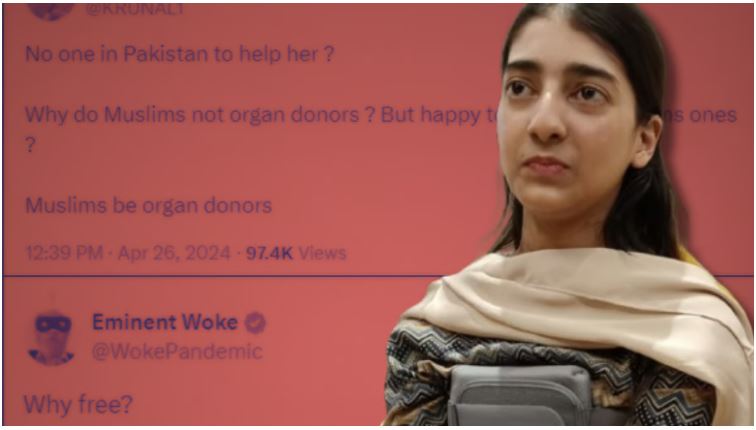
Searching religion of heart: Some Bhakts are Anth or blind towards humanity
text_fieldsAnthbakth, or blind follower, is a common word with a connotation used to refer to extremists within the right-wing fold, and some of the recent social media comments regarding a 19-year-old Pakistani girl who received an organ transplant in Chennai endorse the term 'blindness towards humanity'.
Social media accounts allied with the right-wing lambasted the healthcare system for allegedly prioritizing foreigners over Indian citizens and criticized the funding of the surgery, which was provided by an NGO, invoking religious and regional hatred towards Pakistani nationals. They argued that resources should be directed towards needy Indian patients, as reported by The News Minute.
It was the organ transplantation received by the Pakistani girl, Ayesha Rashan, in Chennai that provoked a section of right-wing social media handlers to blindfold their humanity.
Ayesha's journey began in 2014 when she first sought medical treatment in India for a heart condition. Despite initial interventions, her health deteriorated over the years, necessitating a heart transplant. Placed on the National Organ and Tissue Transplant Organisation's (NOTTO) waiting list in 2019, Ayesha endured a five-year wait for a suitable donor.
Conversely, supporters of Ayesha's surgery emphasized the humanitarian aspect of healthcare. Doctors involved in her treatment reiterated that patients are patients, regardless of nationality or creed, emphasizing the universal right to medical care.
Dr. KG Suresh Rao from MGM Healthcare underscored their commitment to providing care without discrimination, stating, "We don’t look at their religion or their place of birth. We will do whatever is possible to help."
The cost of Ayesha's treatment was covered by the Aiswarya Trust, an NGO based in Chennai, reflecting the collaborative effort to save her life. Dr KG Suresh Rao, a senior physician at MGM Healthcare, emphasized that their priority is the well-being of patients, irrespective of their nationality or background. He reiterated the hospital's commitment to providing medical care without discrimination.
However, the surgery sparked controversy on social media, with right-wing users expressing outrage over the perceived prioritization of a foreign national over Indian citizens. Some criticized the allocation of resources to treat Ayesha, arguing that there are needy individuals within India who require similar medical attention.
Twitter users, under pseudonyms such as @Dataflixed and @colourSaffron, voiced their discontent, questioning why resources were allocated to Ayesha instead of Indian citizens in need. Others, like @chaijeeevi, accused the healthcare system of providing free treatment to "thankless" individuals while neglecting its own citizens.
Dr. Cyriac Abby Philips, known for his advocacy of medical ethics and humanism, condemned the divisive rhetoric circulating on social media. He emphasized the fundamental principle of medicine: treating every individual as a fellow human being, regardless of nationality or creed. Dr. Philips underscored healthcare as a universal right and called out those who criticized the decision to treat Ayesha.






















